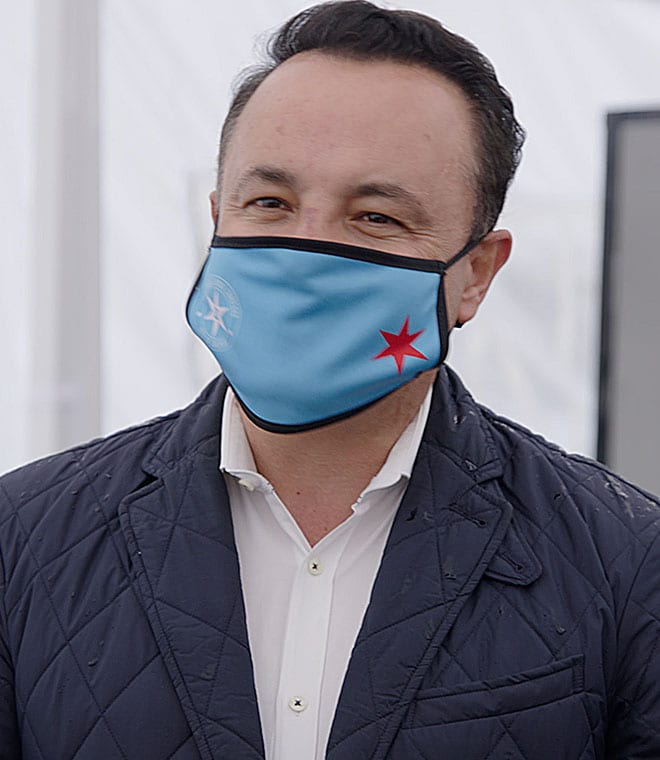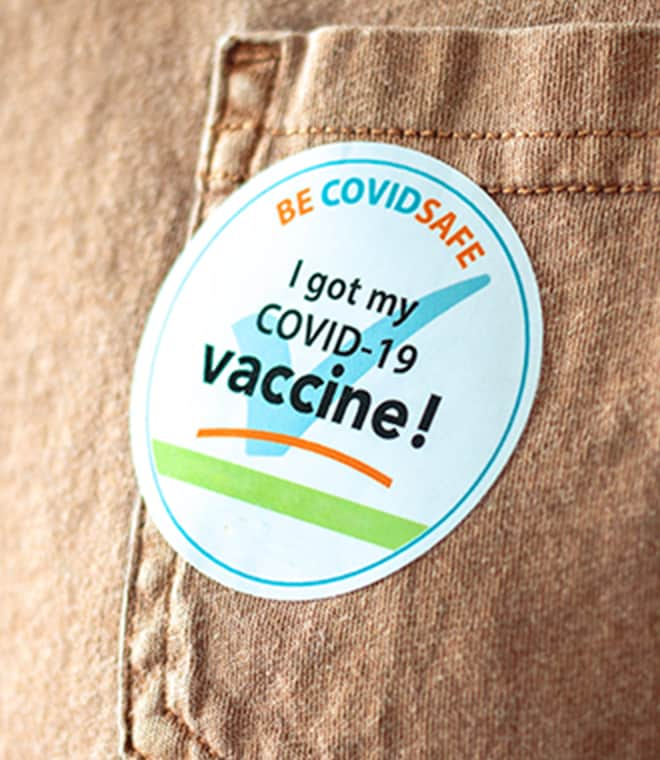Health
Medicare Part D vaccinations: Shingles and other no-cost shots
By Julie Henningfield Oct 21, 2025 • 7 min
As you get older, illnesses and infections like pneumonia, flu and shingles take their toll on your immune system. That’s one reason why it’s so important to stay on top of the vaccinations recommended by the CDC’s Advisory Committee on Immunization Practices (ACIP). Staying up to date with your vaccinations can also help you protect your loved ones, especially if they are vulnerable to infection or can’t get vaccinated themselves. If you’re hesitant to get these vaccinations because of cost and you have Medicare, you can take advantage of new legislation that took effect in 2023.
The Inflation Reduction Act of 2023: What does this mean for you?
On January 1, 2023, the Inflation Reduction Act took effect to offer financial relief for people with Medicare and Medicare prescription drug coverage, also known as Medicare Part D.
The Inflation Reduction Act focused on:
- Expanding benefits
- Lowering prescription drug costs
- Improving the Medicare program for the long run
Additionally, this means your Medicare plans will offer more coverage, accessibility and affordability — at no cost to you.
Latest vaccination coverage updates
Below are the latest updates for vaccinations covered by Medicare Part B or Medicare Part D.
Vaccinations available at no cost for Medicare Part B members:
- Flu
- Pneumonia
- COVID-19
- Hepatitis B (for qualifying Part B members)
Vaccinations available at no cost for Medicare Part D members:
- Shingles
- Respiratory syncytial virus (RSV)
- Tetanus (lockjaw), diphtheria and pertussis (whooping cough)
- Meningococcal and hepatitis A (may be available at no cost for Medicare Part D members who meet certain criteria)
Review the CDC adult immunization schedule for recommended vaccinations relative to your age group to learn more.
The importance of vaccinations for seniors
Shingles, flu, pneumonia, whooping cough, and respiratory syncytial virus (RSV) vaccinations are important for health. If you are 65 years or older (75 or older for RSV or 50 through 74 with certain risk factors), you’re at the greatest risk for serious complications, especially if you’re living with:
- Diabetes
- Asthma or chronic obstructive pulmonary disease (COPD)
- Liver or kidney disease
- Heart disease
- A weakened immune system due to cancer, chemotherapy or HIV-related conditions
Flu
If you’re concerned about catching the flu, getting a flu vaccine is the single best proactive step you can take to lower your risk of developing flu complications.
Beginning with the 2023 season, the CDC strongly recommends seniors get higher-dose or adjuvanted flu vaccines, based on recent studies. These studies reveal higher-dose and adjuvanted vaccines are potentially more effective than the standard vaccines used for this age group.
Pneumonia
Adults aged 65 and older should strongly consider getting the pneumococcal vaccination because they are the greatest at-risk population for serious illness and death.
According to the CDC, in addition to the more common symptoms, older adults may experience confusion or low alertness and complications, which can include:
- Infections in the lungs or chest cavity
- Inflammation of the outer lining of the heart
- Blockage of the airway that allows air into the lungs
- Abscess in the lungs
There are two kinds of vaccines available in the U.S.
- Pneumococcal conjugate vaccines (PCV15, PCV20 and PCV21)
- Pneumococcal polysaccharide vaccine (PPSV23)
Respiratory syncytial virus (RSV)
People aged 75 and older, or 50 through 74 with certain risk factors, are at increased risk of getting severe illness from RSV. The CDC warns that these adults may experience worsening of conditions such as asthma, chronic obstructive pulmonary disease (COPD) or heart failure. Severe RSV can require hospitalization to support breathing and hydration.
The CDC currently recommends a single RSV shot for eligible seniors who have not previously been vaccinated.
COVID-19
People aged 65 and older are at higher risk of getting severe illness from COVID-19. Getting a COVID-19 vaccination can reduce the chances of getting infected, but its main strength is preventing severe illness and death.
Shingles
Shingles is a viral infection that causes a painful rash. Studies show that the shingles vaccination, Shingrix, is a safe, effective two-dose series for your body to fend off shingles and prevent future infections, as well as prevent long-term, severe nerve pain known as postherpetic neuralgia, or PHN.
The CDC recommends that adults aged 50 and older get two doses of Shingrix, separated by two to six months. If you have a weakened immune system, you can get the second dose one to two months after the first.
Although there is no maximum age for getting Shingrix, the CDC recommends getting the vaccine even if in the past you:
- Previously had shingles
- Received Zostavax (a vaccine that’s no longer available for use in the U.S.)
- Received varicella (chickenpox) vaccine
Tetanus (lockjaw), diphtheria and pertussis (whooping cough)
Caused by bacteria, all three of these diseases can lead to serious illness and death. To prevent tetanus, diphtheria and pertussis, the CDC recommends older adults get a Tdap (for all three) or Td (tetanus, diphtheria) booster shot every 10 years.
Additional vaccinations
Meningitis: This inflammation of the protective covering around the brain and spinal cord can be caused by both bacteria and viruses — and it can be deadly. The CDC recommends that adults who meet certain criteria get vaccinated.
Hepatitis A and B: Hepatitis is an inflammation of the liver that can be caused by one of several viruses. The good news is, there are effective vaccines available for hepatitis A and B. The CDC recommends that older adults with risk factors for hepatitis A or B infection get vaccinated.
How to easily schedule your recommended vaccinations
If you’re ready to take preventive measures to protect your health and your community, you can conveniently schedule many of your recommended vaccinations at Walgreens.com/ScheduleVaccine. Vaccinations subject to availability. State-, age- and health-related restrictions may apply.
Remember, talk to your healthcare provider or pharmacist to learn which vaccinations are recommended for your unique situation.
Clinically reviewed and updated October 2025.
Sources:
- https://www.cdc.gov/flu/spotlights/2021-2022/specific-vaccines-seniors.htm
- https://www.cdc.gov/shingles/vaccines/
- https://www.cdc.gov/pneumococcal/signs-symptoms/
- https://www.cdc.gov/vaccines/vpd/pneumo/public/index.html
- https://www.medicareinteractive.org/get-answers/medicare-covered-services/preventive-services/hepatitis-b-shots
- https://www.cdc.gov/acip-recs/hcp/vaccine-specific/index.html
- https://www.cdc.gov/vaccines/vpd/mening/public/index.html#should
- https://www.medicare.org/articles/does-medicare-cover-the-hepatitis-a-vaccine/
- https://www.medicareinteractive.org/get-answers/medicare-prescription-drug-coverage-part-d/medicare-part-d-costs/part-d-covered-vaccinations
- https://www.cdc.gov/covid/risk-factors/index.html
- https://www.cdc.gov/covid/vaccines/stay-up-to-date.html
- https://my.clevelandclinic.org/health/articles/21196-immune-system
- https://www.cdc.gov/vaccines/by-age/
- https://www.cdc.gov/hepatitis/about/
- https://www.cdc.gov/rsv/
- https://www.cdc.gov/respiratory-viruses/prevention/immunizations.html



